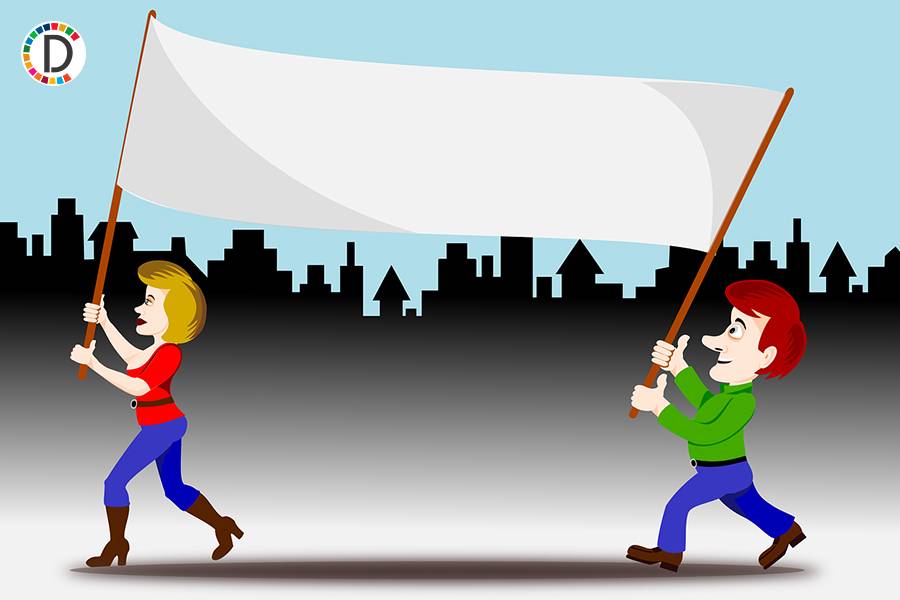FACTBOX-What's in Tunisia's proposed new constitution?
But where the internal security forces report to the government in the existing constitution, they will now be responsible to the president. - Article 136 says the president, or at least one-third of the members of the parliament, has the right to demand the revision of the constitution, but amendments cannot include changes to the number of presidential terms, which is set at two.

A proposed new constitution for Tunisia significantly enhances the powers of the head of state, hardening fears among critics of President Kais Saied that he aims to entrench one-man rule and undo the democratic gains of 2011 Arab Spring uprising. However, many Tunisians welcomed Saied's moves to do away with the previous system of power sharing between parliament and president, frustrated by years of political paralysis and petty squabbling.
The new constitution, which will be put to referendum on July 25, erodes a parliamentary system established in the 2014 constitution. Here are some of its main features:
PRESIDENT SHAPES GOVERNMENT - Article 101 says the president appoints the prime minister, as well as other cabinet members, based on a proposal from the prime minister - a big departure from current system that gives a major role to parliament in picking governments.
- Article 112 says the government is responsible to the president, while article 87 says the president exercises the executive function with the assistance of the government. - Article 102 says the president can terminate either the government or any of its members.
- In order for parliament to force the resignation of the government, Article 115 says two-thirds of lawmakers must back a no-confidence vote, a bigger margin than the simple majority currently required. Article 116 says that if a second no-confidence vote is brought in the same parliamentary term, the president can either accept the government's resignation or dissolve parliament, prompting a new election. WEAKER PARLIAMENT
- Article 68 gives the president the right to present draft laws to parliament, and says these take priority over other legislative proposals. It says the president is the one who submits draft laws agreeing to treaties, and financial draft laws. - Article 61 states that the mandate of a lawmaker is subject to withdrawal according to conditions defined by the electoral law. These are not spelt out.
- Article 69 says draft laws and proposals for amendments to existing laws submitted by lawmakers are not acceptable if they would "upset the financial balances of the state", without defining what this means. - The new constitution would create a new "Council of Regions" as a second chamber of parliament, but it gives few details on how it would be elected or what powers it would have.
PRESIDENTIAL PREROGATIVES - The new constitution refers to legislative, judicial and executive "functions" rather than powers, language which critics say points to their diminished standing of these branches of government in the proposed presidential system.
- Article 109 states the president enjoys immunity throughout his tenure, and that he shall not be questioned about actions undertaken while performing his duties. - Article 95 allows the president to take "exceptional measures" if "there is a imminent danger threatening the republic, the security of the country and its independence", after consulting the prime minister and parliament.
- Article 106 grants the president the power to make senior appointments in the military and civil services, based on a proposal from the prime minister. - As in the current constitution, the president is the chief of the armed forces. But where the internal security forces report to the government in the existing constitution, they will now be responsible to the president.
- Article 136 says the president, or at least one-third of the members of the parliament, has the right to demand the revision of the constitution, but amendments cannot include changes to the number of presidential terms, which is set at two. - Article 140 extends the validity of a presidential decree issued by Saied in September 2021 that allowed him to rule by decree, until elections to a newly elected parliament assumes its functions.
JUDICIAL POWERS - As with the legislature and executive, the judiciary is described as "a function" rather than a "power", which critics say points to its diminished standing.
- Article 120 says judges are appointed by order from the president, pursuant to a nomination by the relevant Supreme Judicial Council. They are barred from going on strike. ROLE OF ISLAM
- Article 5 states that Tunisia is part of the Islamic nation, and the state alone must work to achieve "the goals of pure Islam in preserving life, honour, money, religion and freedom". A phrase in the existing constitution, which Islamists have long argued defined Tunisia as an Islamic state, has been removed. Article 88 says the president must be a Muslim. FREEDOMS AND RIGHTS
- Similar to the existing constitution, the new one pledges to protect rights and freedoms including the right to form political parties and protest. It says freedom of opinion and publication is guaranteed, as is the freedom of belief. - It says the state guarantees equality for men and women, that the state will work to guarantee women's representation in elected bodies, and that it will take measures to combat violence against women.
- Article 55 says no restrictions will be put on rights and freedoms "except by virtue of a law and for the necessity of national defence or public security" - also similar to the existing constitution. (Writing by Tom Perry; Editing by Alison Williams)
(This story has not been edited by Devdiscourse staff and is auto-generated from a syndicated feed.)
ALSO READ
Hafiz Naeem elected sixth emir of Jammat-e-Islami Pakistan
India's top court puts order banning Islamic schools on hold
Turkey detains 48 people with suspected ties to Islamic State, minister says
PoK: Islamic scholars demand justice amidst 15-year wait for employment
Soccer-France, Spain tighten security for Champions League games citing Islamic State threats










